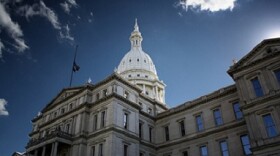You don’t need a master’s degree in labor relations to know that America’s labor unions have been declining for years. In the early 1950s, more than a third of all private sector workers were unionized; in Detroit, that number may have been over half.
But the U.S. Bureau of Labor Statistics reports that last year, union membership nationally fell to 10.7 percent, the lowest it’s been since before the New Deal and the Wagner Act gave workers the right to organize. In fact, union membership is far less in the private sector.

Barely six percent of all those workers now belong to unions, as opposed to a third of those who work for some form of government. Many members of the Michigan Legislature are actively hostile to labor, and have been doing their best to weaken unions further still.
And unions were having trouble long before the political climate turned against them. Back in the 1930s and 40s, they figured out brilliantly how to organize workers who work in a single location for one company. But they’ve never figured out how to reach the independent contractor sitting at her computer, and have almost completely failed at persuading auto workers who work for companies other than the Detroit three to affiliate with their unions.
So is unionism nearly dead as a political force? Well, maybe not, at least according to Elizabeth Faue, a labor expert and chair of the history department at Wayne State University.
Last week, Wayne State held its annual labor history conference. I couldn’t be there, but Faue and others told me it was better attended than usual, and drew more of what she called “public historians,” those involved in leading historical organizations outside the academy.
She’s also the author of what I’m finding a fascinating new book, Rethinking the American Labor Movement, published a few months ago by Routledge.
Faue finished the book before last year’s election, and didn’t expect the result. But if anything, what’s happening now may be leading to a labor resurgence – but that we should not necessarily look for it in the same form as in the past.
For years, those sympathetic to labor – as well as opposed – have been trying to spot a next great labor leader, another Walter Reuther or Cesar Chavez or even John L. Lewis.
But the top is not where the resurgence is coming from. “I think that labor seems to be regene rating itself at a grass-roots level,” Faue said. In her book, she suggests looking at groups like Black Lives Matter, the Occupy Movement, and the fight for a $15 an hour minimum wage.
One thing is certain; inequality is growing, and economists like Thomas Piketty and the Nobel Prize-winning Joseph Stiglitz agree that unless we do something to address this, it will paralyze economic growth.
American history is full of movements that were given up for dead and revived and returned. Labor unions were the folks, after all, who made our middle-class possible, and gave us the weekend. There are signs that some of us are starting to remember.
Jack Lessenberry is Michigan Radio’s Senior Political Analyst. Views expressed in his essays are his own and do not necessarily reflect those of Michigan Radio, its management or the station licensee, The University of Michigan.





